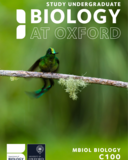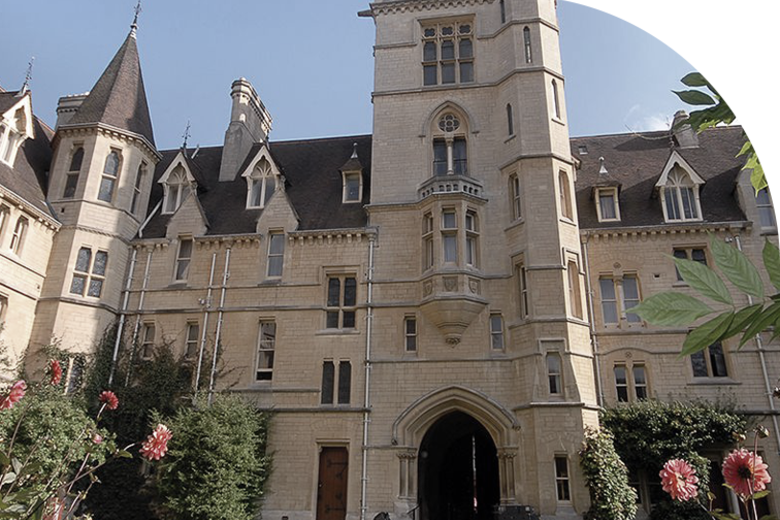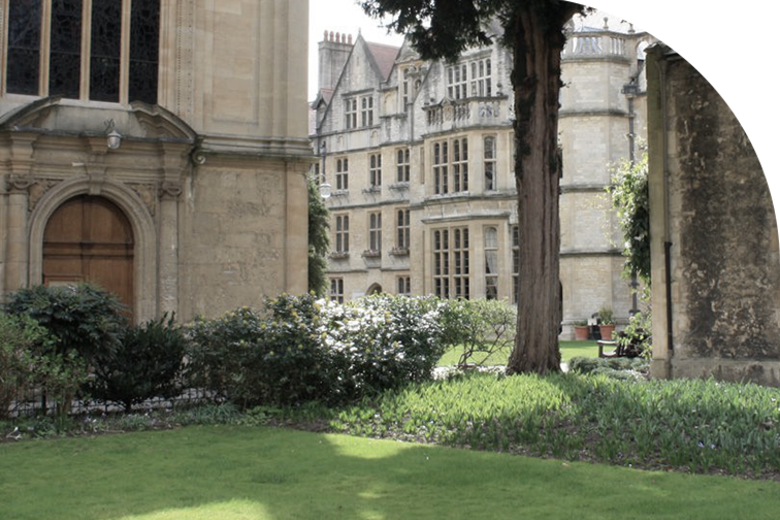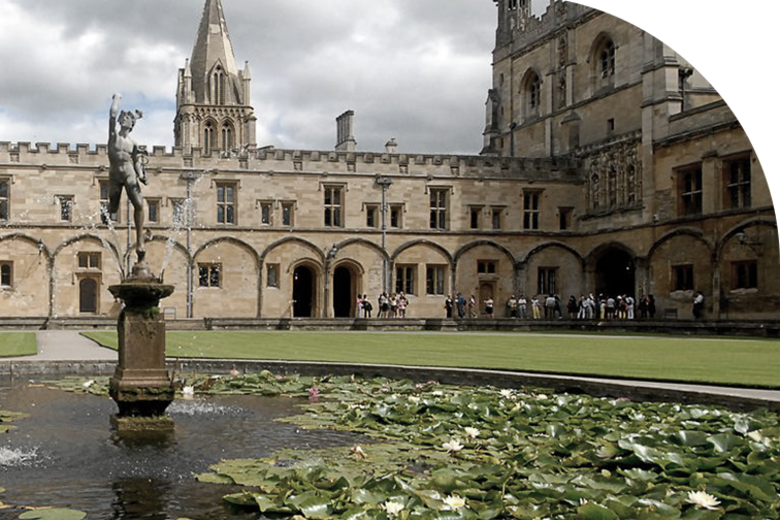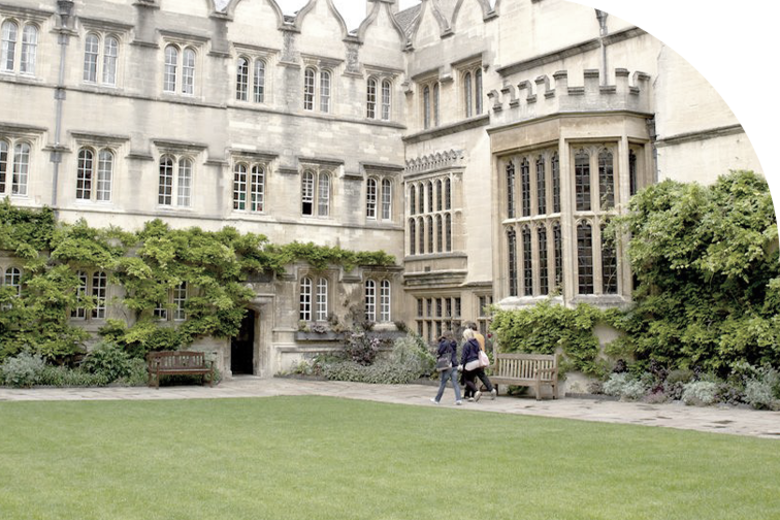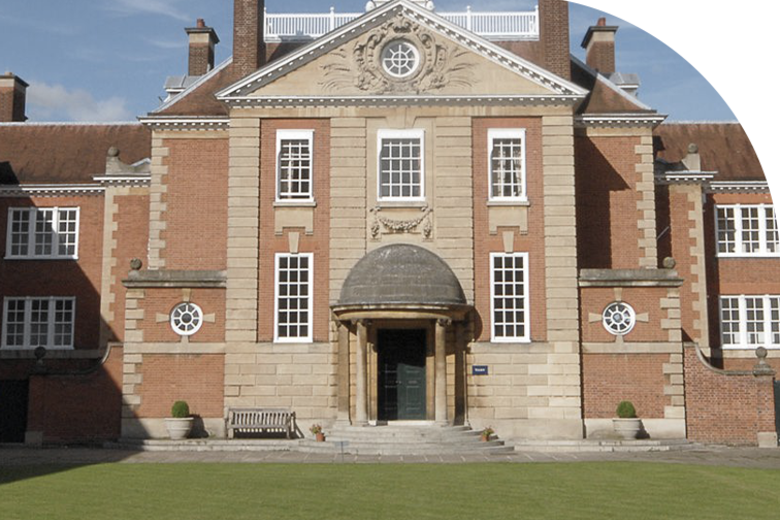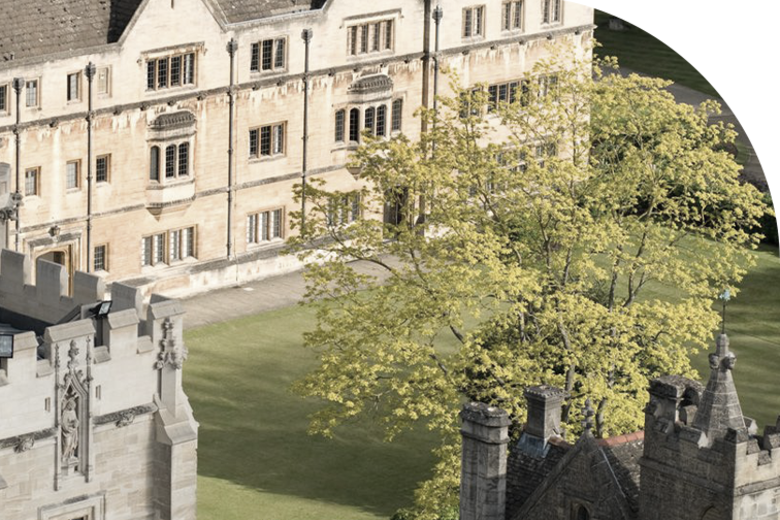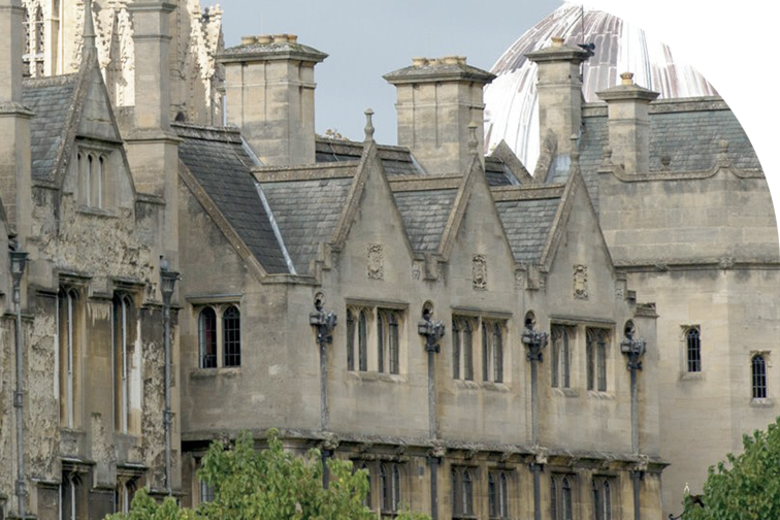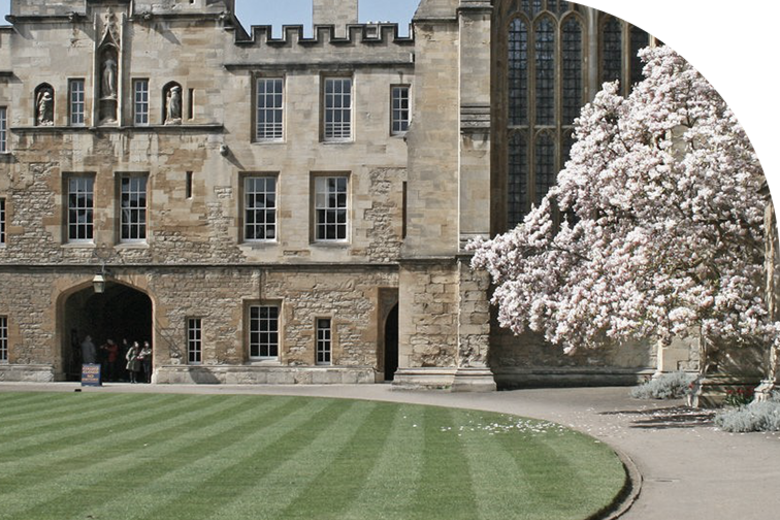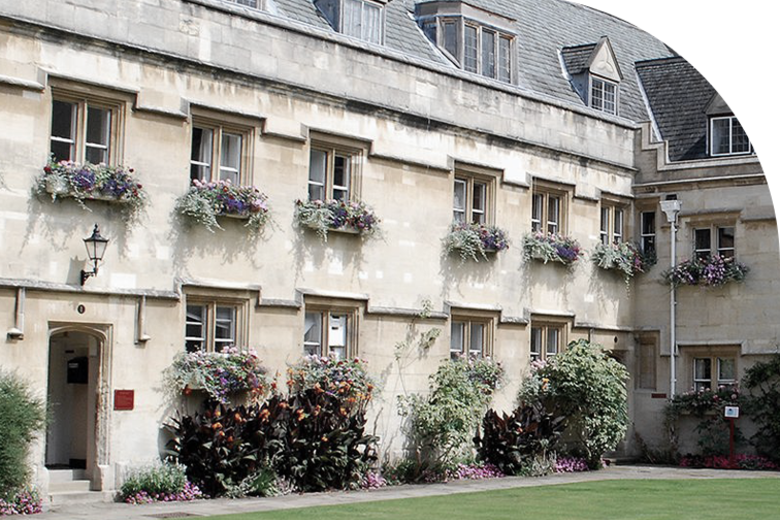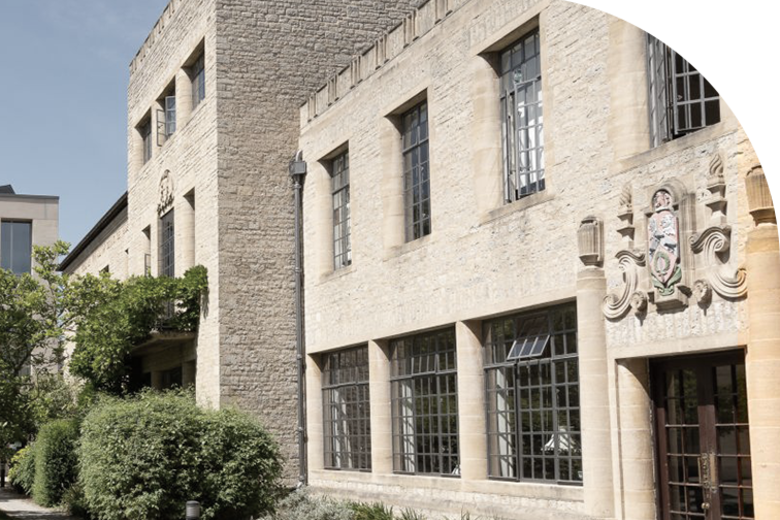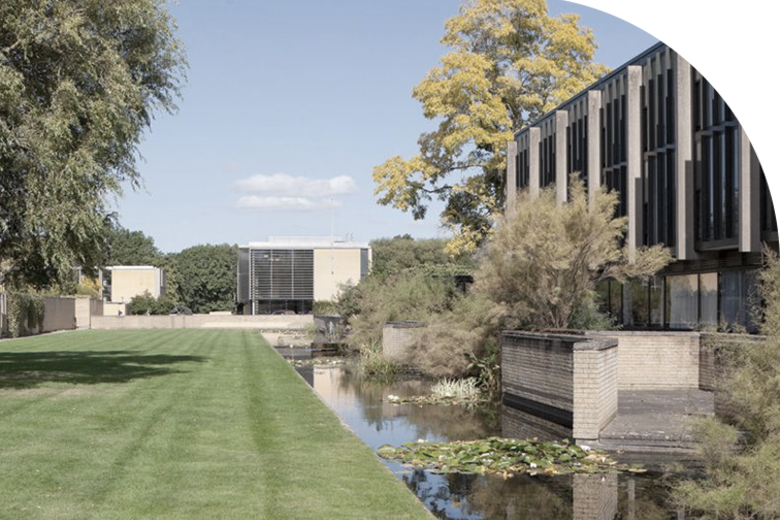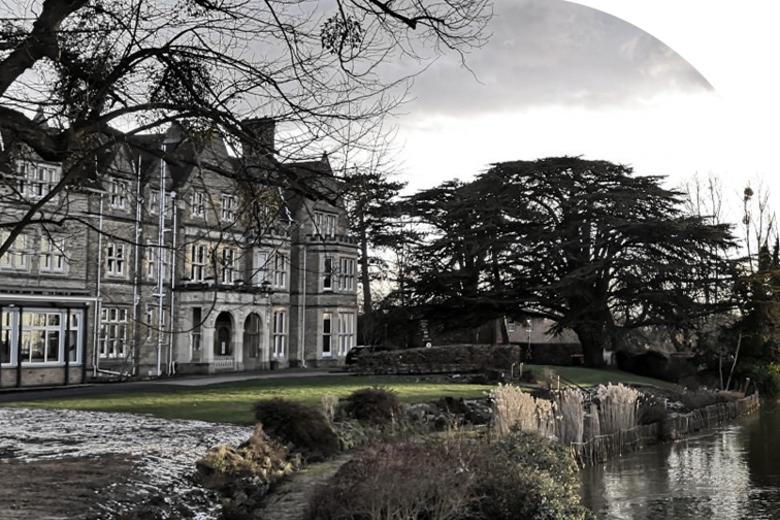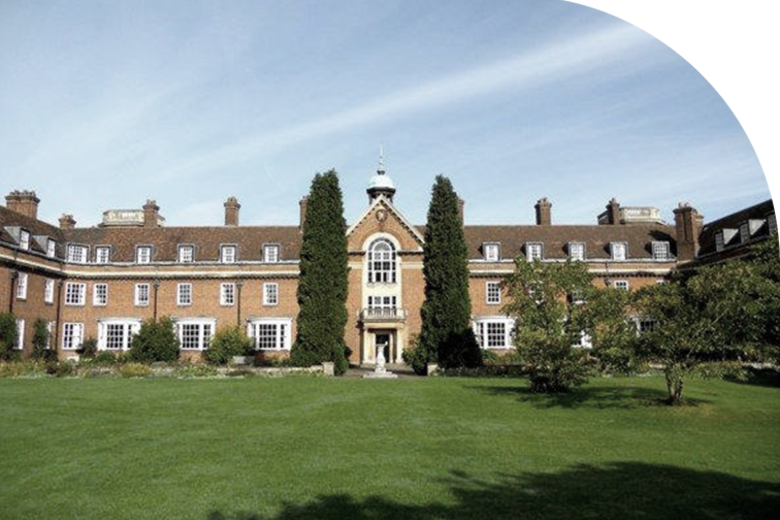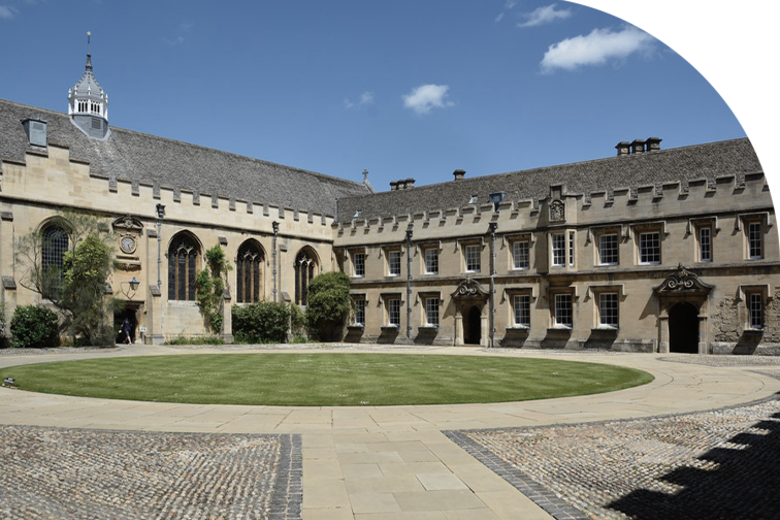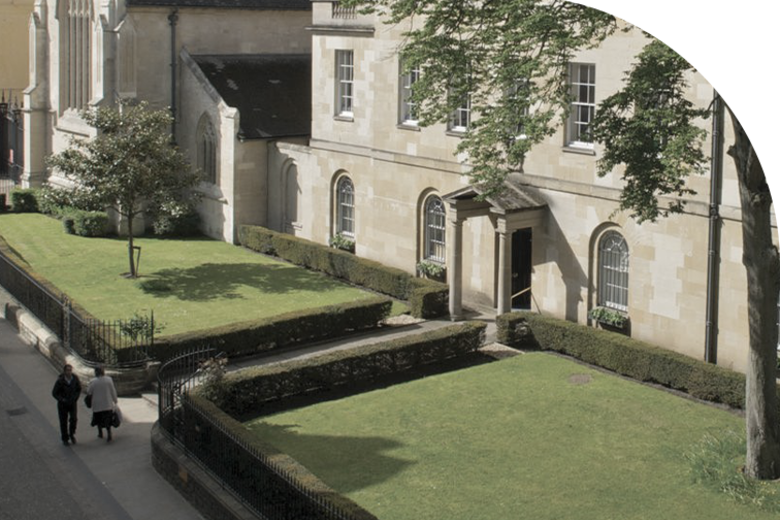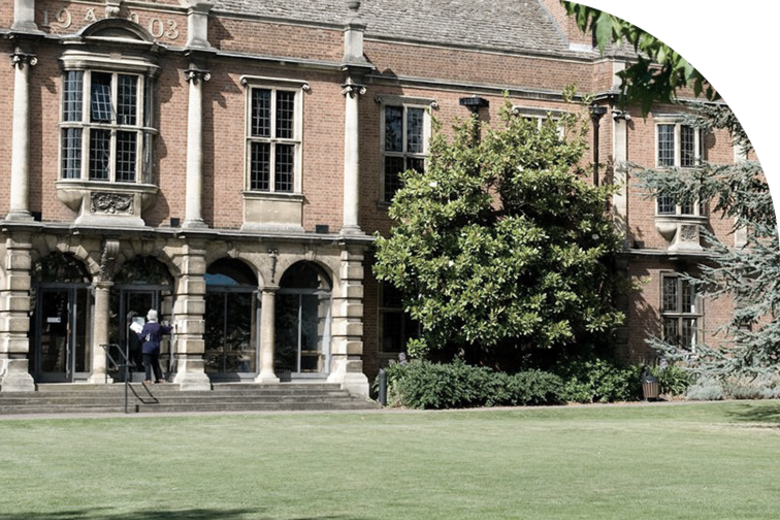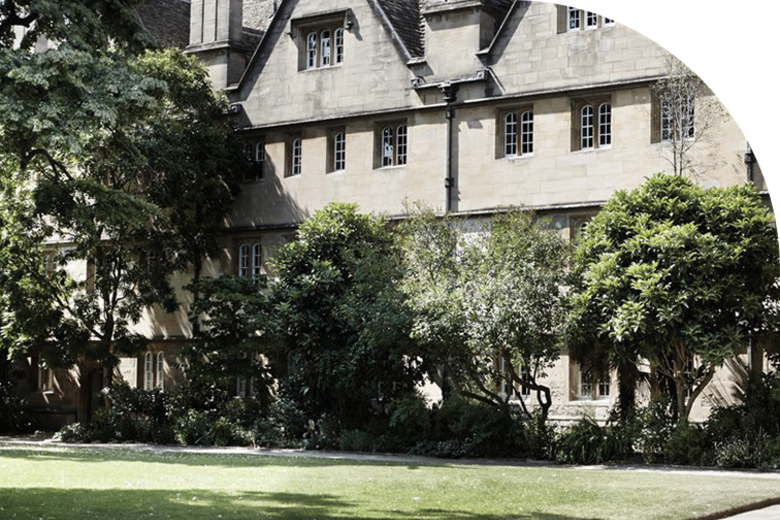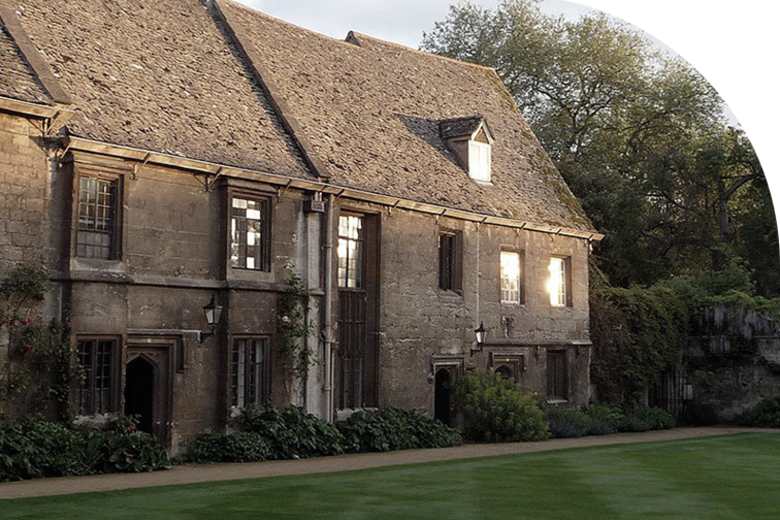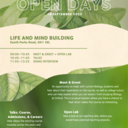Undergraduate MBiol
https://www.youtube.com/embed/5LxcwMSQav4
All students join the MBiol; at the end of Year 3, you can choose whether to leave with a BA or to continue to the MBiol, subject to satisfactory academic performance in the first three years. In Year 4 you will pursue an independent research project, which gives you the opportunity to join a research group at the forefront of the field of your interest.
The course covers all areas of biology from molecules to ecosystems, including both fundamental science and its real-world applications. We strongly emphasise research skills through lab practicals, computer programming, analysis, and the reading and discussion of scientific papers, helping you to develop skills beyond essay-writing. We also offer opportunities to hone and extend your skills through intensive courses, which can involve fieldwork or immersive lab practice.
Oxford is the oldest university in the country, and all students belong to a college with at least one dedicated biology tutor. The college system provides care and support throughout your degree.
https://www.youtube.com/embed/R5zChcNj9HE
Read the MBiol brochure
In Year 1 you receive an introduction to themes that recur through the course, along with scientific methods and essential research skills. Lectures, practicals, and discussion sessions come from three interwoven themes:
- Diversity of life
You will be introduced to the full breadth of living organisms on the planet. Moving across the tree of life, you will learn about the evolutionary origin and the morphological and behavioural diversity of major organismal groups, from bacteria to plants, fungi, and animals. - Building a phenotype
You will learn about the molecular interactions that underpin life. You will learn how genetic information is organised within genomes, how this information is converted by cellular machinery into key components of the cell’s phenotype, and how genetic engineering has enabled us to improve medical and agriculture outcomes. - Ecology and evolution
You will learn how life arose and radiated into the millions of species with which we share our planet. In parallel, you will learn how individuals of these species interact with each other and with the physical environment, including the factors that influence their abundance and distributions.
Year 1 begins with a four-week orientation period, designed to help you settle into Oxford and learn key research skills. Everyone does the same modules in the first year; this gives you a really important grounding across topics before you start choosing modules in your later years. Key goals are: learning the scientific method, discovering Oxford’s unique facilities such as the Natural History Museum, the Botanic Garden, the Arboretum, the Herbarium, and Wytham Woods, and learning key research skills. There are lectures, lab practicals, computing sessions, discussion sessions (in which you discuss topics in depth), and a week-long residential field course in the UK.
In Year 2, the depth of material increases and you begin to specialise. You can choose at least three out of four themes:
- Cell and Developmental Biology
- Ecology and Evolution
- Genomics and Host-microbe Interactions
- Organisms – Behaviour and Physiology
You receive training in statistics and quantitative methods, and will join an extended skills course. There are many exciting options, including intensive lab training and overseas and UK-based residential field courses. In previous years, options have included residential field courses in Borneo, Dorset, and Northern Ireland.
In Year 3 you choose at least four from eight specialist modules. The current list of modules is:
- Advanced Cell Biology
- Advanced Ecology & Evolution
- Animal Behaviour & Physiology
- Biology of Infectious Disease
- Ecosystems, Conservation & Sustainable Development
- Evolution & Development
- Genome Diversity & Evolution
- Green Grand Challenges
The modules listed above are illustrative and may change. All combinations are possible and some modules contain a small number of practicals.
Your computing skills are developed and assessed, and you choose a topic to research and present orally. Journal club provides training in how to read and critique scientific papers.
In the summer term (Trinity Term), you work on a research proposal with an academic supervisor; this is assessed as part of the BA and forms the basis of the fourth-year project for those who continue to Year 4.
If you continue to the fourth year, you will complete a long research project, supported by some optional advanced research skills training.
Research skills training
In the fourth year, you will have an entire academic year to focus on an in-depth piece of research as a member of your supervisor’s research group. While you will focus on your own piece of research, a large part of the training will come from participating in the day-to-day activity as a member of your research group, and by working with its other members (post-docs, PhD students etc.). However, there will be a programme of training and advanced skills courses to support the conduct and writing-up of the research project dissertation, including:
- Experimental design and planning
- Data analysis
- Reproducible research
- Data presentation
- Scientific writing
- Presenting scientific research
- Grant and fellowship writing
The presentation of scientific research training culminates in a mini-conference in which you will have the opportunity to present your work to your peers.
Each project will have a budget of up to a maximum of £1,000.
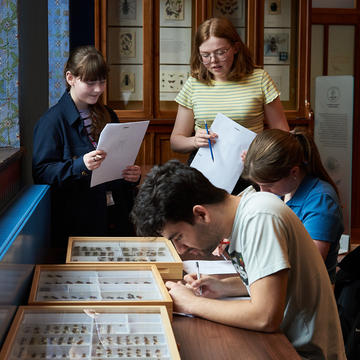
Biology is taught through lectures, skills training (including lab practicals, computer sessions, and field courses), and tutorials. Lectures are designed to tell you about the important issues, theories, and research in biology, while skills training gives you the tools you need to become a modern biologist. We encourage extra reading, and you will find this applies more as the course progresses and you become more familiar with how to approach reading scientific papers.
Oxford University’s greatest asset is the tutorial system. This system means that you are likely to receive much more personal tuition and greater pastoral support than other universities can offer. The tutorial usually consists of a one-hour meeting, once a week, between the tutor and two or three students. They help you develop key transferable skills, particularly evidence-based communication, critical thinking, and problem solving; these are crucial regardless of the career path you choose.
Tutorials can vary in style but often your tutor will set you an essay and provide a reading list. You hand in the essay before the tutorial, which is read and commented on by your tutor, and handed back at the start of the tutorial. The discussion during the tutorial goes beyond the original topic, giving you a chance to talk about your own ideas and opinions. Most first-year tutorials take place in your college with your college tutors. In later years, most students have tutorials with a wide range of tutors, depending on their interests.
Skills training
You have the opportunity for a range of lab, field, and computer-based investigations in the first three years of the course; these provide essential practical skills and knowledge to prepare you to engage with your own research in the fourth year. Most lab practicals include a pre-lab session which helps you understand and make the best use of the practical time. In the first year, there are a small number of carefully selected dissections that have been designed with animal welfare and conservation principles in mind. The second year has dedicated skills courses, giving you the chance to learn some more specific research skills.
We are looking for the brightest biologists of the future – that could be you! If you are a natural history buff, passionate about conservation, driven to help solve problems facing human health, or someone who loves maths or coding but would like to apply these skills to challenges facing the natural world – our course is for you.
These pages have been designed to guide you through our admissions process. If you are an international student, you can find additional resources on the University of Oxford website.
The steps below should help guide you through the various steps of the UCAS and Oxford undergraduate application process. This applies to everyone, but may be of particular use if you are an international student and not familiar with the UK process of applying to university.
https://www.youtube.com/embed/dBlYuAfc8_4
All applications to UK undergraduate courses need to go through UCAS (Universities and College Admissions System). This is a shared system used across the UK, which makes it easier if you are looking to apply to more than one university. You only have to write one application, which goes to all universities that you choose to apply to. You can apply to up to five courses/universities. You can find a step-by-step guide to UCAS on their website, and some useful information about applying to Oxford via UCAS, including when you can start working on your application and the deadline, here.
See section 7 'submit by the deadline' below for further information.
Choosing your course is the most important thing you can do – the course provides your core teaching (particularly for a subject like Biology). You can read about all the undergraduate courses available at Oxford here, or you can hear a talk given about the Biology course here (or on the 'Admissions' tab). Make sure you have a look at our Biology brochure too, which you can find on the ‘About the Course’ tab.
Oxford is one of a small number of UK universities with a college system, which can be confusing if you are not familiar with it. Our talk about the course mentions colleges, but the summary is that the college you choose doesn’t matter too much for biologists – your core teaching will be the same, with college teaching being through tutorials (small group teaching) in your first year. After your first year, tutorials can be with a range of people, and they don’t have to be from the same college as you.
Colleges are where you live, and they provide a social community both with other people doing your degree and many others doing different degrees. This helps you meet more people.
You don't have to pick a specific college on your application and even if you do, you may not end up at the one you choose. There is a system in the Biology course, where shortlisted candidates are spread across colleges, so no one will be at either an advantage or disadvantage based on where they have applied.
Course entry requirements are detailed on the University Biology admissions page (see the Admissions Requirements tab).
Your application will not be competitive without evidence of your academic ability, so it is really important you tell us about what you have achieved so far at school or college. All your formal exam results should be listed, along with any formal predicted grades.
Find out more information about how applying to Oxford with international qualifications works here, and general information about Oxford and admissions for international students here.
There are a lot of applications for a limited number of places on our course, so the personal statement is a really important part of the application. Your personal statement is a chance to stand out, to tell us about yourself and what makes you want to study biology. Our talk about our course mentions personal statements, but the key points are:
- Show your passion for the subject – don’t just tell us you like biology, show us evidence. Have you read any books, watched any documentaries, gone on any walks or trips, or done any volunteering? Explain what about biology you are interested in and anything that inspires you.
- Be honest – you might be asked about your statement in an interview, so make sure you can talk about anything you write! Don’t, for example, say you’ve read a book when you haven’t.
You can find some tips and resources from UCAS on writing a personal statement here.
Your academic referee should know you well enough to write about you and why you are suitable for the course. If you are at school or college, or have recently left, you could ask one of your teachers. If you left school or college a few years ago, you could ask your current or previous employer, or supervisor of voluntary work.
If you are applying from overseas, we will not have access to the same contextual information as we do for home candidates: your school's performance, how you performed relative to other people in your school, how often people from your background go to university. Your referee can help us by providing contextual information in their letter.
Oxford and Cambridge have an earlier UCAS deadline than most UK universities – this is mid-October instead of late January; you can find this year's deadline on the UCAS website. Lots of resources, including an admissions timeline, can be found on the Oxford website.
After the application deadline, submissions will be read by tutors and some candidates will be invited to interview. You will always be invited to do an interview at two different colleges, which means you get two chances. This also means more tutors will get to meet you, to help each other decide on candidates. If you are offered a place, it will come with required minimum exam grades or qualifications that you need to meet in order to secure your place, unless you have already met the conditions of the offer.
After the application deadline, submissions will be read by tutors and some candidates will be invited to interview.
We shortlist applicants for interview based on who displays the greatest potential as biologists in their UCAS form. So, if you have achieved a strong set of GCSE grades (or equivalent), by which we simply mean one of the top sets of grades within your own school, and you display a deep interest in Biology, then we will want to see you at interview. Ask your teacher to include any mitigating circumstances that might have affected your performance in their UCAS reference to help us put your grades in context.
We take account of the full range of information available to us at shortlisting, so if you think you meet our admissions criteria then it is always worth applying. If you've already taken your A-levels (or equivalent), we will usually interview you if you have met our standard offer and also display the deep interest in biology that we always look for.
If shortlisted for interview, you will always be invited to do an interview at two different colleges, which means you get two chances. This also means more tutors will get to meet you, to help each other decide on candidates.
Interviews are held online in December. In the interviews, we want to know more about why you’re interested in biology, and see how you respond to a biological problem that might be completely new to you. You might expect some questions based on your UCAS form, and it is likely that you will be asked to discuss a data figure. A good biologist is someone who is interested in the natural world but who is able to make sense of it through data, so both aspects are important for us to get a feel for whether our course is right for you.
“My first interview was actually quite enjoyable and rewarding as I felt myself understanding my questions bit by bit as more information was revealed. My second was quite different but I would suggest to not let a small setback early in the interview changing the way you act throughout the rest of it.”
- Madeleine, student
After the college interviews, all College Tutors meet to discuss the gathered field of interviewees to decide which applicants will be made offers. Any college admitting Biology students can make an offer, so if you have applied to a particular college you might receive an offer from a different college.
If you are offered a place, it will come with required minimum exam grades or qualifications that you need to meet in order to secure your place, unless you have already met the conditions of the offer.
In some cases, the college that an offer holder joins will not be determined until A-level or equivalent exam results are published in the summer.
Offers are usually made for admission in October of the next academic year, but you may also submit a deferred application to start a year later.
All students who come to the University of Oxford are associated with an Oxford college. There are 21 Oxford colleges that offer Biology. Each has its own history, ethos, and architecture, as well as providing students with accommodation, food, and a wealth of social activities. Although your lectures, practicals, field courses, and exams will be organised by the Department of Biology, the college will be responsible for organising small group teaching known as tutorials. First-year tutorials are often with your own college tutors, but in later years, students receive tutorials from staff across the Department.
You can name a college at the application stage, but this is not essential. Due to the large numbers of applicants at certain colleges, you might be interviewed or offered a place at a different college; this means that no one is at a disadvantage because they have applied to a college that has received a high number of applications that year.
Studying at Oxford means you'll be learning from world-leading experts and have access to cutting edge resources, but that's far from all the University has to offer! Living in Oxford means you'll be in a beautiful, historic city with a very active student population, and a lot of choice about extra-curricular activities to get involved in. Oxford's terms are shorter than most other UK universities, lasting for about 8 weeks. You'll spend a lot of that time in labs, lectures, and preparing for tutorials, but there's a lot of other things outside of your course that will be a big part of your life here.
A lot of your student life will happen in and around your college. Each college has its own social culture (as well as stereotypes!), so it's worth having a think about what you want when choosing what college to apply for. Colleges also have sports, music, and drama groups, as well as the Junior Common Room, which represents the voice of the student body to the rest of the college. You'll likely spend some of your time living in college, too, so make sure to check out what accommodation they have available.
Outside of college, Oxford has over 400 clubs and societies to join, ranging from the Quidditch Society to the Ceilidh Band, and featuring amateur dramatics groups, political societies, and much more. It's very tempting to want to sign up to everything that interests you during freshers week, and it's always great to try as many things out as you can - just try not to overwhelm yourself! Over time, you'll find out what you enjoy most and where your closest friends are.
Oxford also has a reputation of being a high-pressured environment, so make sure you know how to take care of yourself whilst studying here. There's a lot of support that you can access in your college, the Department and the wider University, to help you make the most of your time at Oxford and equip yourself to manage any stresses that arise.
Biology is a great foundation for many professions that require observation, communication, critical thinking, and intellectual skills.
Some of our students continue to postgraduate research at Oxford or further afield. Others use their skills and knowledge to establish careers in a variety of sectors, which may or may not have direct connections to biological topics. These vary from charity and not-for-profit, law, energy and the environment, financial services, consultancy, health and social care, government and public services, and media, marketing, and publishing.
| Time | Session | Location (all in Life and Mind Building) |
| 09:00-10:45 | Meet & Greet + Open Lab | Lower ground floor & ground floor |
| 10:45-11:45 | Course, Admissions, and Careers Talk | Lower ground floor, lecture theatres 1&2 |
| 11:55-12:25 | Demonstration Interview | Lower ground floor, lecture theatres 1&2 |
Meet & Greet
An opportunity to meet with current Biology students and hear about their experience on the course as well as college tutors who can help explain what you can expect from studying Biology at Oxford. This is a casual session where you have a chance to hear what makes this course so interesting.
Open Lab
Take a look at our teaching lab, where you would have practical teaching sessions.
Course, Admissions, & Careers Talk
Hear about the exciting course modules across the years, and the classes, labs, and field trips to expect. We will also cover the admissions process and the potential careers that biology can take you to.
Demonstration Interview
There are lots of myths about interviews at Oxford, but they’re really just conversations about a particular subject. Join our demonstration interview to see what it is like and what kind of questions you can expect.
Find us
The Open Day will be taking place in the Life and Mind Building, South Parks Road, OX1 3EL. The building is located at the corner of South Parks Road and St Cross Road (see on Google Maps).
September 2025 Open Day Schedule
You can find out more about Biology at Oxford by keeping up with our Instagram, @BiologyOxford. You can also visit the central University website for more information regarding the University Open Days.
Find more information about what it's like to study Biology at Oxford in these YouTube videos:
https://www.youtube.com/embed/videoseries?list=PLXiKiyo6tkx6xF3_HHBnD9wtjnsVfSL5o

